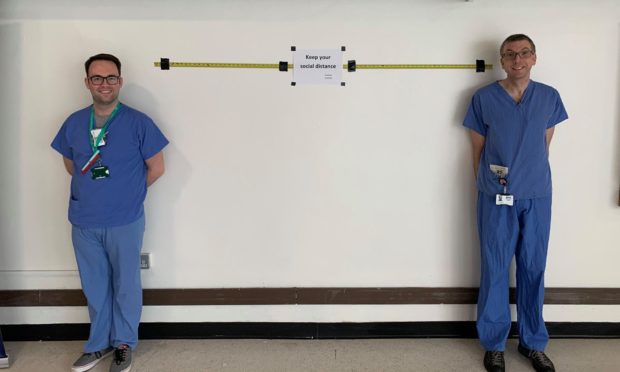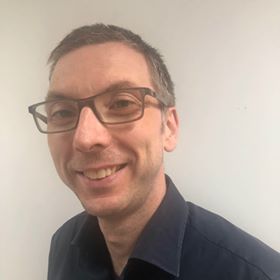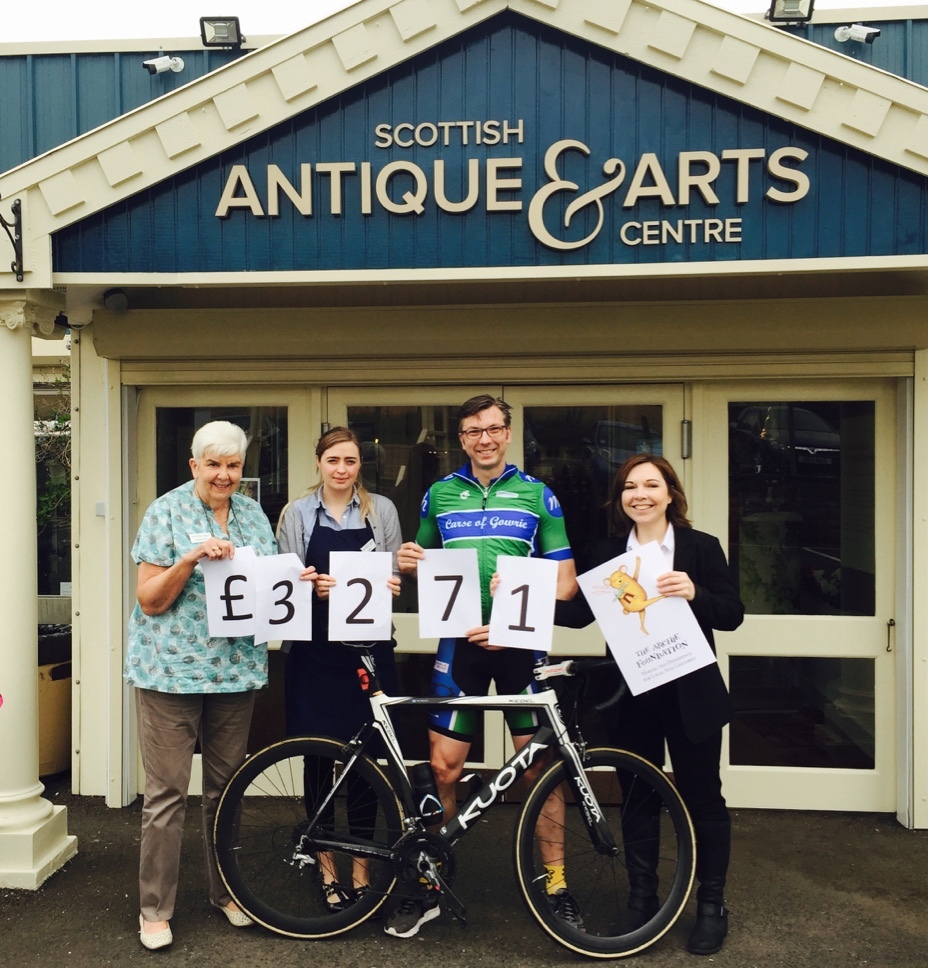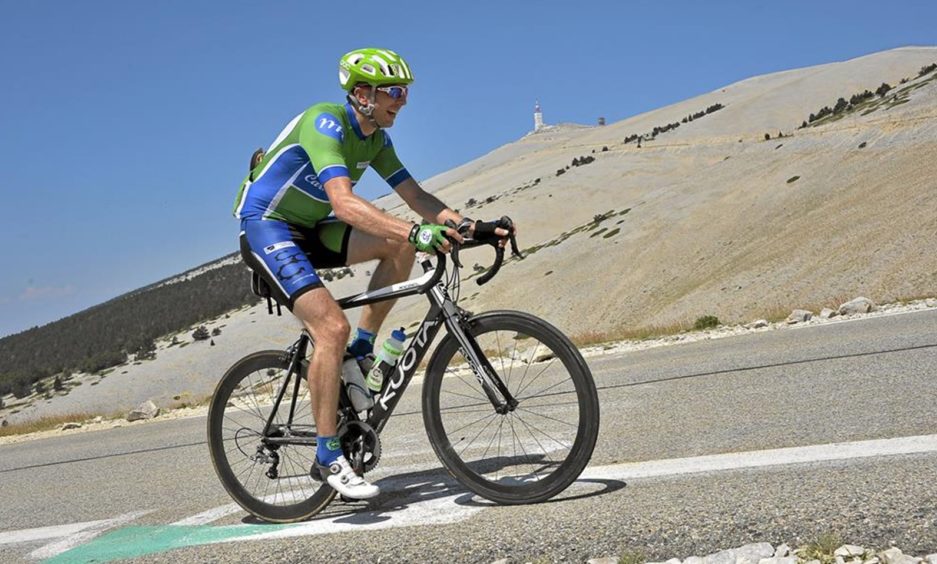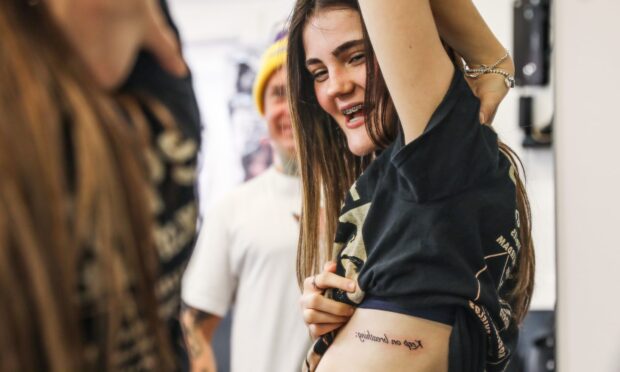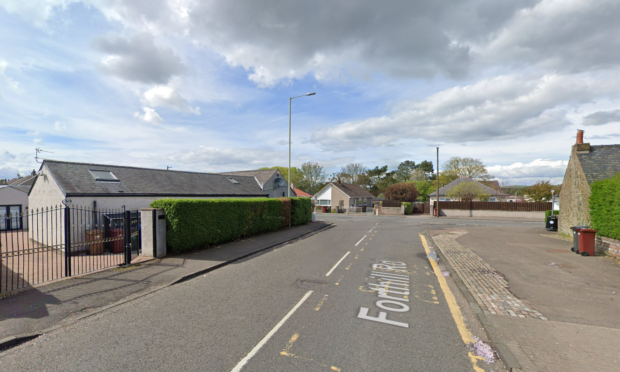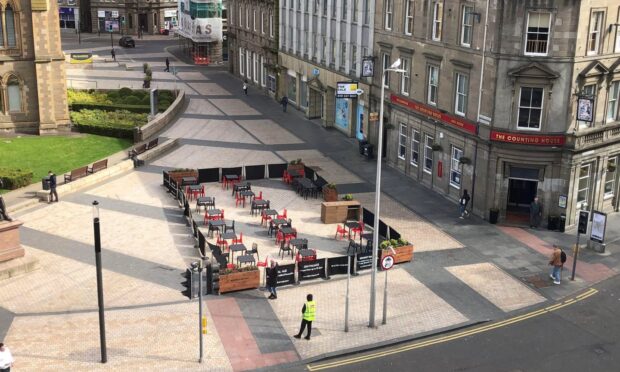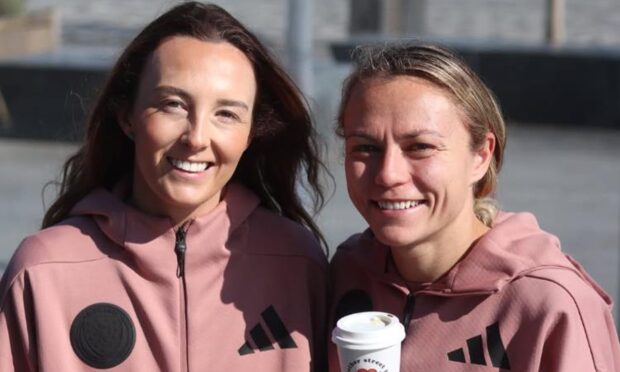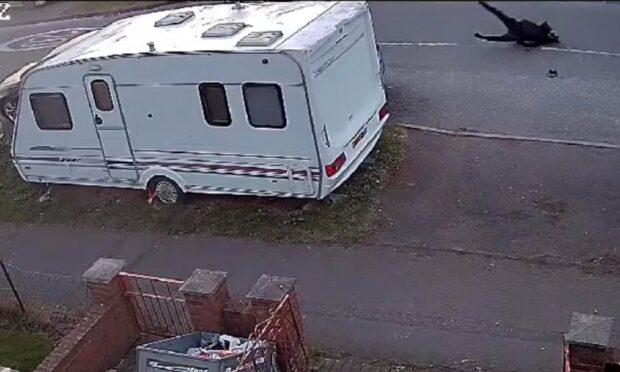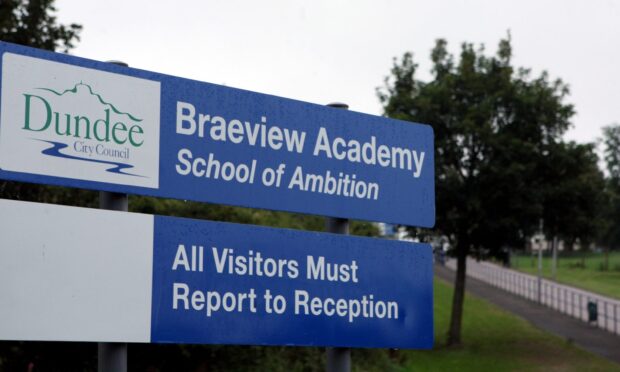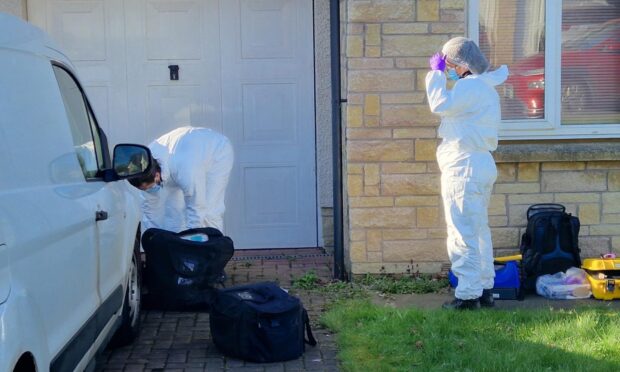The face of the NHS Tayside coronavirus response has revealed he is gaining new insight into the disease now he’s seeing it from the perspective of a patient.
Dr Tom Fardon noticed his throat and head were starting to ache after he completed a recent round at Ninewell’s Covid-19 unit. Ten hours later the respiratory expert, who has informed thousands with his Tayside-focused view of the battle against coronavirus, had tested positive and is now locked away in a spare room.
“The Covid virus is very widespread, so the risks of catching it were always there for key workers,” he tells The Courier from his home in the Carse of Gowrie.
“My family are obviously concerned, but the priority is now to keep them safe by isolating as much as I can.”
It’s not an easy task, especially with two teenage children in the house who are used to hugging and high fiving their dad.
“It took them a little while to realise not to do that. It’s a different world to live in,” he says.
“I have the virus now, so the one thing I can focus on is giving it to as few people as possible. My aim is to pass it on to nobody.”
The 43-year-old consultant physician in respiratory and general internal medicine came to prominence early on in the crisis when his social media posts, initially written to offer comfort to his friends, began to be shared more widely.
One post, mentioning a night shift in the Tayside hospital’s Covid-19 ward as the clocks went back for the official start of British summer time, has been shared almost 3,000 times.
He reluctantly acknowledges he has become the “face” of NHS Tayside during the crisis, but insists that was never the plan.
“It is a huge team effort at Ninewells. It’s all of us who are doing the work and I am just one person in that team,” he says.
However, the public reaction to his positive diagnosis has been moving.
“It’s overwhelming the number of messages I have received through social media and other ways,” he says.
“I hope that I have helped people as I have tried to give a local view about what is happening.”
To date, he has offered advice on social distancing, the science behind the lockdown, availability of personal protective equipment in Ninewells and shared his first hand experiences of life in the hospital.
Aside from his frontline job, he has a role at the University of Dundee working with medical undergraduate students as well as research interests in lung conditions.
His training and experience offers him a unique perspective on living with the virus, he says.
“I’ve seen the full range of Covid-related disease, so I know how unwell people can be when they have this infection. I know the signs to look out for, and I know that the key things to do are to keep isolated to reduce the risk of spread, and to rest.
“I have found it very interesting to experience the symptoms that my patients have been through – experiencing the disease gives really valuable insights.
“I know how severe this illness can be, but I also know what we’ve known from the start – the majority of people who get this disease will have self-limiting symptoms, and not require hospital care.”
For now, he is isolating in one room in his house – the one with the Xbox video games console, he observes happily – and is not sharing toilets, showers, baths or cutlery with his family.
“I am in the same situation as a lot of people – keeping isolated to protect ourselves and our loved ones is difficult, but the right thing to do.
“I’m only a few days from the onset of my symptoms, so I will be strictly isolating for another few days before I consider any return to normal activities.”
He spoke to The Courier as the UK and Scottish Governments confirmed the lockdown would last at least another three weeks.
Continuing to follow the rules is more important now than ever, he said.
“Lockdown has been the most effective part of the effort to contain Covid-19, Scottish rates are levelling out, but we’re not yet at a point where we can lower our guard.
“The planning in NHS Tayside takes into account the possibility of further increases in admissions. We are ready for a second wave, if it occurs.
“When numbers start to fall, continuing social distancing, good hand hygiene, and the other measures we’re all used to now, will continue to be important.
“We have gained a lot from sharing other countries’ experiences in the pandemic – learning from their approaches will be key.”
